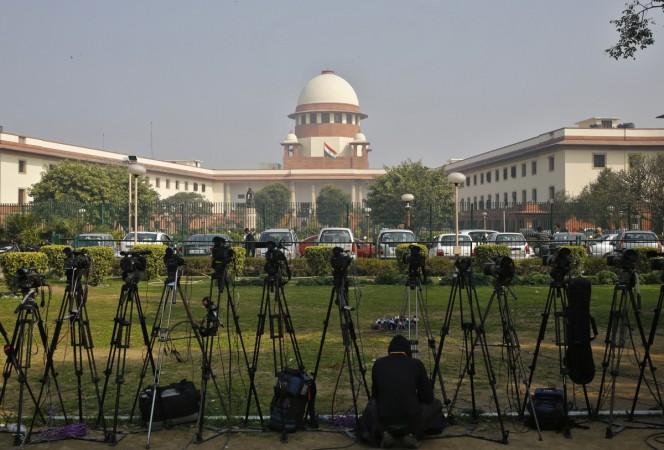
The Supreme Court on Monday refused to entertain a fresh petition on Article 370, which gives special autonomous status to Jammu and Kashmir, and said that the issues raised in it were already part of the pending pleas.
A bench comprising Chief Justice Ranjan Gogoi and Justice Ajay Rastogi asked the petitioner to file an application for impleadment in the pending matters.
During the brief hearing, the bench asked the petitioner as to why he wanted to increase the number of petitions on the issue.
"We have heard the petitioner. The issues raised in the petition are part of the petitions pending," said the bench.
The petition filed by advocate Vijay Mishra and Sandeep Lamba has sought a declaration that Article 370 of the Constitution had lapsed with the dissolution of constituent assembly of Jammu and Kashmir on January 26, 1957 and it cannot be treated as mandatory for exercise of powers of the President.
The plea has also sought that the Constitution of Jammu and Kashmir be declared as "arbitrary, unconstitutional and void", claiming that it was against the supremacy of the Indian Constitution and contrary to the dictum of "One Nation, One Constitution, One National Anthem and One National Flag".
It has sought declaring as arbitrary some provisions of the Jammu and Kashmir Constitution, which deals with permanent residency and flag of the valley among other issues, for being violative of the Preamble and the Indian Constitution.
The petition has said that continuance of two parallel constitutions, one for the Centre and other for the state of Jammu and Kashmir, "reeks of a weird dichotomy" as most of the provisions of the Indian Constitution has already been extended to the state.
It has alleged that due to vote bank politics, successive governments did nothing to repeal Article 370 and Constitution of Jammu and Kashmir was adopted much after the Indian Constitution came into force.
It also added that the instrument of accession of October 26, 1947 does not talk about separate Constitution or constituent assembly for the state.
-PTI

















